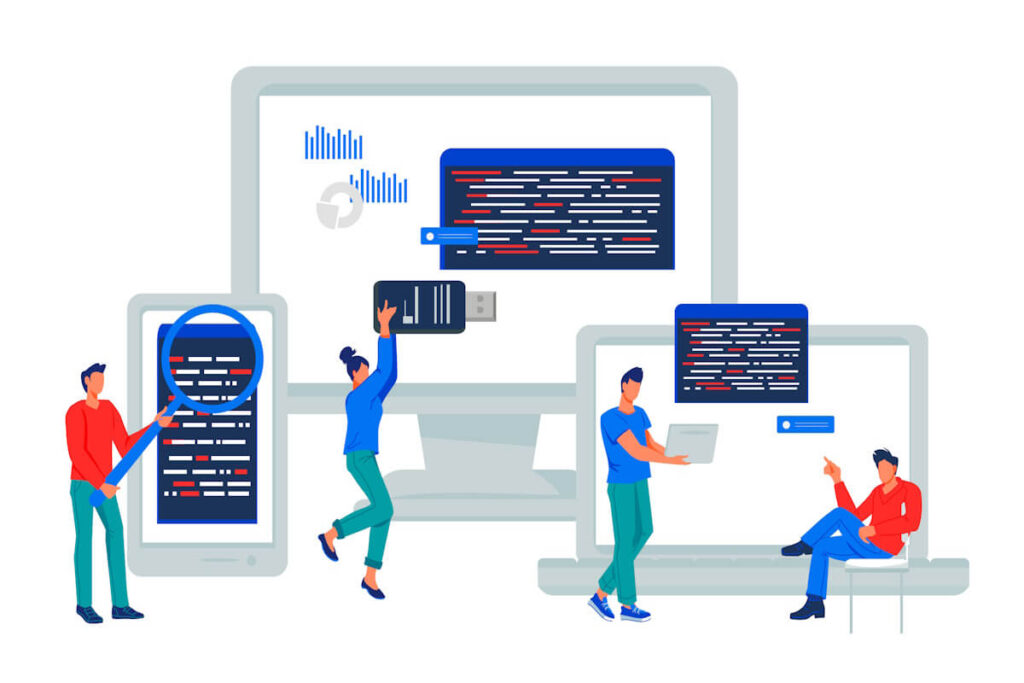In the ever-evolving world of software development, PHP remains a popular choice for creating dynamic and interactive websites. The rise of offshore development teams has enabled businesses to leverage cost savings and expertise from teams located in different parts of the world. In this article, we will delve into some of the latest trends in offshore PHP development and how businesses can harness these trends to their advantage.
1. Remote Teams Collaboration
Remote teams collaboration is a fundamental trend in offshore PHP development. With the advancement of technology, teams can seamlessly work together irrespective of their physical locations. This enables businesses to tap into a global talent pool and access specialized skills that may not be readily available locally.
- Virtual collaboration tools such as Slack, Zoom, and Microsoft Teams facilitate real-time communication among remote team members.
- Project management platforms like Jira and Trello help in organizing tasks, tracking progress, and ensuring timely delivery of projects.
- Regular video conferences, stand-up meetings, and code reviews are essential for fostering collaboration and maintaining team cohesion.
2. Agile Development Practices
Agile development practices have become a standard in software development, including PHP projects. Offshore teams are increasingly embracing Agile methodologies such as Scrum and Kanban to enhance project efficiency and adaptability to changing requirements. This approach fosters greater flexibility, transparency, and collaboration among team members.
- Daily stand-up meetings promote communication, identify roadblocks, and keep the team aligned towards project goals.
- Sprint planning sessions help in prioritizing tasks, estimating workloads, and setting achievable goals for each iteration.
- Retrospective meetings allow teams to reflect on their performance, identify areas for improvement, and implement changes for continuous enhancement.
3. DevOps Integration
DevOps practices are gaining traction in offshore PHP development. By integrating development and operations teams, businesses can streamline the deployment process, enhance communication, and ensure faster time-to-market for their applications. Continuous integration and continuous delivery (CI/CD) pipelines automate testing and deployment processes, leading to more reliable and scalable applications.
- Automated testing tools like Selenium and Jenkins help in detecting bugs early in the development cycle and ensuring code quality.
- Infrastructure as Code (IaC) practices enable teams to provision and manage infrastructure resources using code, enhancing consistency and scalability.
- Monitoring tools such as New Relic and Datadog provide real-time insights into application performance, allowing teams to proactively address issues and optimize system efficiency.
4. Microservices Architecture
The adoption of microservices architecture is another prevalent trend in offshore PHP development. This approach involves breaking down complex applications into smaller, independent services that can be developed, deployed, and scaled autonomously. By decoupling components, businesses can achieve greater flexibility, scalability, and resilience in their applications.
- Service discovery tools like Consul and Eureka facilitate communication and coordination between microservices in a distributed environment.
- Containerization technologies such as Docker and Kubernetes enable efficient deployment and management of microservices across different environments.
- API gateways like Kong and Apigee help in securing, managing, and monitoring interactions between microservices and external clients.
5. Cloud Computing
Cloud computing has revolutionized the way applications are developed and deployed. Offshore PHP development teams are leveraging cloud services such as Amazon Web Services (AWS) and Microsoft Azure to build scalable and cost-effective solutions. By utilizing cloud infrastructure, businesses can reduce the need for on-premises hardware, improve scalability, and enhance security.
- Serverless computing platforms like AWS Lambda and Azure Functions enable developers to focus on writing code without worrying about infrastructure management.
- Auto-scaling features in cloud platforms dynamically adjust resources based on application demand, optimizing performance and cost efficiency.
- Security services such as AWS Identity and Access Management (IAM) and Azure Security Center enhance data protection and compliance in cloud environments.
6. AI and Machine Learning
Artificial intelligence (AI) and machine learning (ML) are cutting-edge technologies being integrated into offshore PHP development. Businesses are exploring ways to leverage AI and ML algorithms to enrich user experiences, automate repetitive tasks, and derive insights from vast datasets. Offshore teams with expertise in AI and ML can empower businesses to stay competitive in today’s digital landscape.
- Natural Language Processing (NLP) libraries like NLTK and SpaCy enable the analysis and understanding of text data for chatbots and sentiment analysis.
- Machine learning frameworks such as TensorFlow and PyTorch support the development of predictive models for personalized recommendations and behavioral analysis.
- AI-powered tools like Amazon Rekognition and Google Vision API offer image recognition capabilities for content moderation, object detection, and facial recognition.
Conclusion
In conclusion, offshore PHP development is evolving in tandem with the latest trends and technologies. By embracing remote teams collaboration, Agile practices, DevOps integration, microservices architecture, cloud computing, and AI/ML, businesses can craft innovative and scalable applications that meet the demands of today’s market. With the right offshore development partner, businesses can achieve cost savings, access specialized skills, and deliver high-quality solutions to their customers.
FAQs:
1. What is one of the key trends in offshore PHP development?
One of the key trends in offshore PHP development is the increasing emphasis on remote teams collaboration. With advancements in technology, teams can now work together seamlessly regardless of their physical location.
2. What Agile development practices are being adopted by offshore PHP development teams?
Offshore teams are increasingly adopting Agile methodologies such as Scrum and Kanban to deliver projects more efficiently and adapt to changing requirements. This approach allows for greater flexibility, transparency, and collaboration between team members.
3. How are DevOps practices being integrated into offshore PHP development?
DevOps practices are becoming more prevalent in offshore PHP development. By integrating development and operations teams, businesses can streamline the deployment process, improve communication, and ensure faster time-to-market for their applications.
4. What is the benefit of adopting microservices architecture in offshore PHP development?
The adoption of microservices architecture in offshore PHP development allows businesses to break down complex applications into smaller, independent services that can be developed, deployed, and scaled independently. This leads to greater flexibility, scalability, and resilience in their applications.
